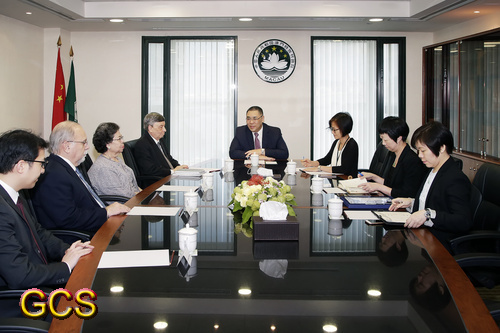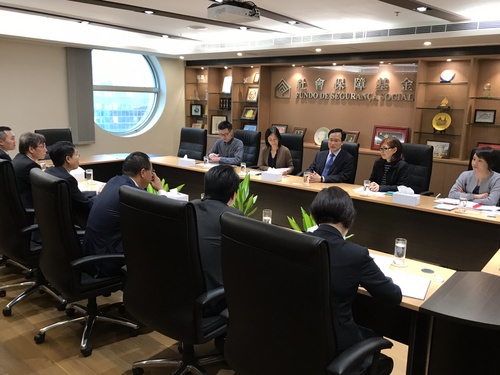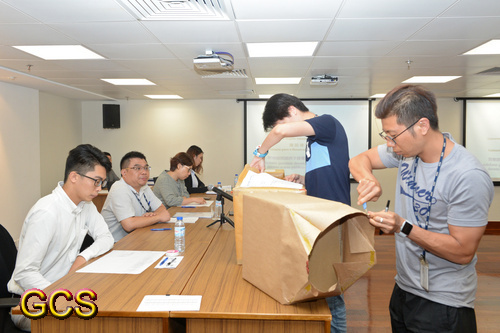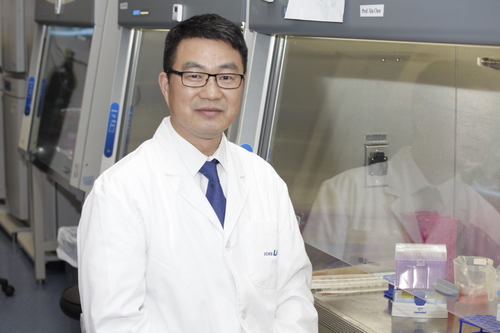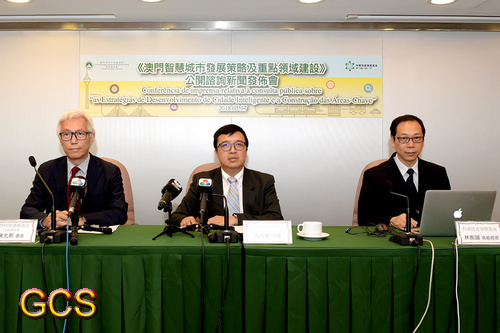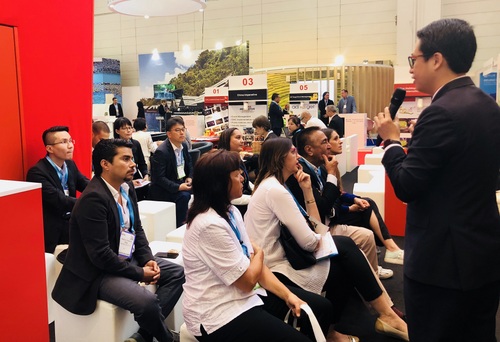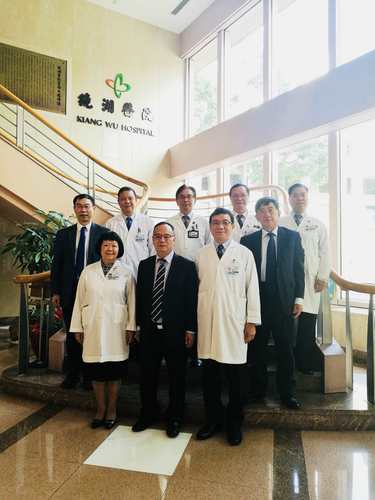Macao SAR Government Portal
News
FSS and Fund Management Entities Regularly Review the Implementation of Central Provident Fund
At present, there are a total of seven fund management entities providing the investment instruments for the contributions of non-mandatory central provident fund system (the System). To protect the residents’ access to appropriate central provident fund services and information, the Social Security Fund (abbreviated to FSS in Macao) continues to be in close contact with the entities to ensure the smooth implementation of the various work of the System.
…
UM research brings new hope to tumour immunotherapy Result featured in The Scientist magazine
A study conducted by the University of Macau (UM) has yielded a breakthrough that is expected to markedly enhance the efficacy of cancer immunotherapy. The collaborative study was led by Prof Chen Xin from UM’s Institute of Chinese Medical Sciences and Dr Joost J Oppenheim from the National Cancer Institute in the United States. The result of this study challenges the traditional view points and proposes a new method for cancer immunotherapy. This study was highly praised by research community and was just featured in The Scientist, an influential international magazine that reports on the most exciting discoveries and innovative trends across the spectrum of life science. This is the first time that a scientific research from Macao has been reported by this magazine.
…
Private sector construction and real estate transactions for the 1st quarter of 2018
Information from the Statistics and Census Service (DSEC) indicated that a total of 5,501 building units and parking spaces were purchased and sold in the first quarter of 2018 as per Stamp Duty record, and the total value of transactions was MOP32.80 billion, up by 69.7% and 52.0% respectively quarter-to-quarter. Purchase and sale of residential units totalled 3,627, an increase of 1,009 units or 38.5% quarter-to-quarter. Analysed by month, transaction volume in January rose sharply by 85.0% while the growth in February slowed to 3.6%; transaction volume in March plunged by 57.6% after the launch of measures to manage residential property market.
…
IPIM Joins Hands with Local Sector to Promote Macao’s MICE Advantages in Frankfurt
The Macao Trade and Investment Promotion Institute (IPIM) organised a number of local enterprises, including hotels, travel agencies, professional congress organisers, destination management companies and conference service providers to participate in IMEX Frankfurt 2018 in Germany from 15 to 17 May. Thanks to the Macao Pavilion set up by IPIM at the venue and the joint effort of Macao enterprises and IPIM, the advantages of Macao’s conventions and exhibitions were in the limelight at the event, enhancing Macao’s progress of “going global”. During the event, almost 150 sessions were successfully made at the Macao Pavilion.
…
International banking statistics – March 2018
According to the statistics released today by the Monetary Authority of Macao, the proportion of international business in the local banking sector rebounded in the first quarter of 2018. At end-March 2018, the share of international assets in total banking assets increased to 85.5% from 84.2% at end-December 2017, while the share of international liabilities in total banking liabilities rose to 80.4% from 79.4%.
…
Consumer Council released its latest ‘Supermarket price survey’ Surveyed spots included supermarkets in São Lázaro and São Lourenço Parishes
Consumer Council conducted its latest ‘Supermarket price survey’ on 16 May for the implementation of Section 2b), Article 10, Law 4/95/M of 12 June. Surveyed locations included supermarkets in São Lázaro and São Lourenço Parishes.
…
Rector Yonghua Song visits different sectors of local community for suggestions
After assuming office as rector of the University of Macau (UM) in January, Rector Yonghua Song visited different government departments and sectors of the local community to collect suggestions on UM’s future development in order to better serve Macao. Rector Song thanks the local comunity for the joint efforts and support to UM and expresses hope to work together with all sectors in order to develop UM into an outstanding university that roots itself in Macao, integrate itself into the Greater Bay Area and relate itself vis-à-vis China and beyond.
…


